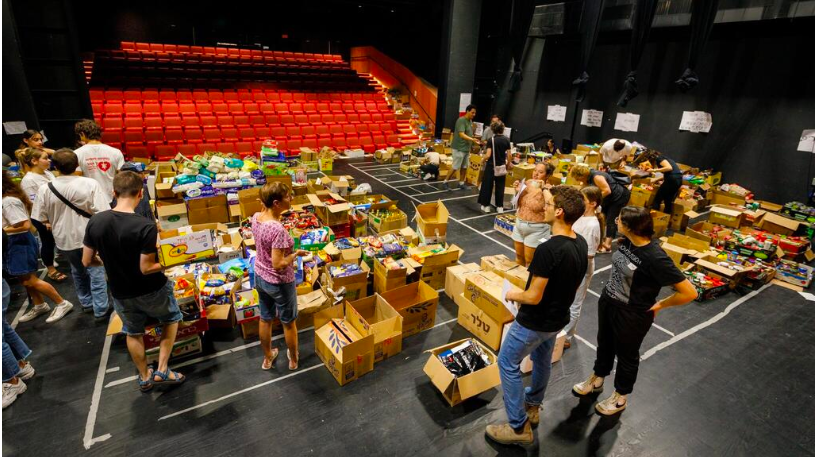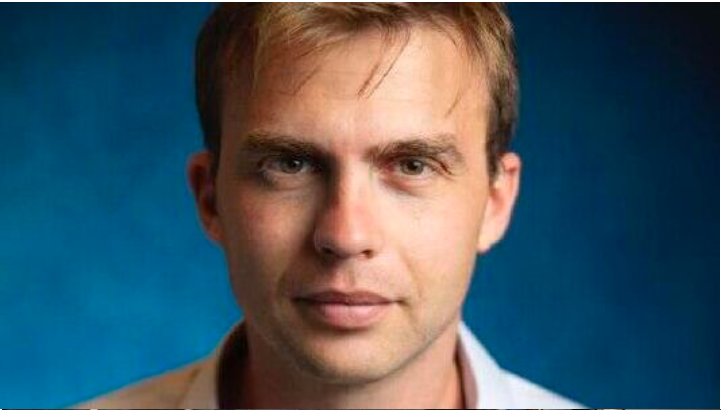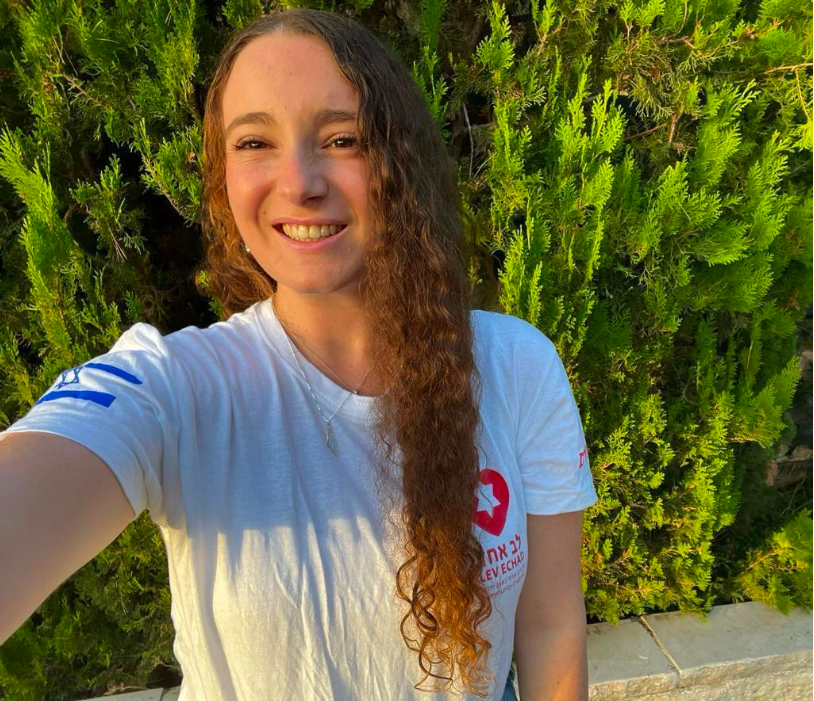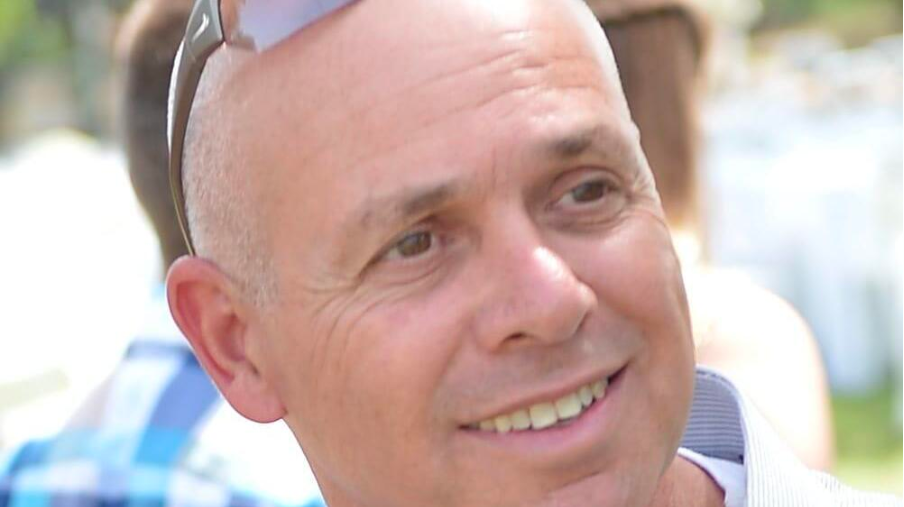Getting your Trinity Audio player ready...
Before the outbreak of the Swords of Iron War, NGOs did not receive full recognition or support for their important work in both the public and government sectors. At the time, NGOs were seen as "nice to have" partners that governments could delegate increasing responsibilities to, but only provide partial financial backing.
Read more:
This attitude of taking NGOs for granted changed when disaster struck. The crisis exposed just how critical these organizations had become in responding to urgent needs. When calamity befell Israel, it demonstrated how sluggish official governmental channels are compared to civil society's immediate response. Through filling the void, NGOs proved their value in times of crisis in a way that could no longer be overlooked.
A year's worth of donations in a single month
Data from the nonprofit fundraising platform JGive shows a stunning surge in donations since the start of the war. Over NIS 170 million have been raised for over 1,000 NGOs on the frontlines, thanks to the generosity of more than 140,000 individual donors.
In fact, donations received through JGive in 2022 account for an overwhelming 95% of the total funds raised for NGOs so far this year. As the crisis unfolded, JGive's philanthropic technology proved invaluable. The platform provides payment solutions, personalized fundraising campaigns and innovative donation management tools for individuals, foundations and companies wanting to support approved organizations immediately.
JGive works to foster a culture of giving and serves as a meeting point for connecting needs with donors' willingness to help. In response to the October events, JGive launched the Together We Will Win Emergency Fund. Donations are distributed as grants to NGOs in the field, with allocation decisions made by an external expert committee led by former Israeli Air Force commander Brigadier General (ret.) Elyezer Shkedy. This ensured funds would reach those most able to relieve hardship and save lives on the ground.
Where response was lacking, civil society stood out
Udi Lavi, former deputy head of Mossad and JGive board member, says that "residents of the periphery were exposed to functional gaps in government ministries, some inevitably due to circumstances, some the result of lack of planning and some the result of inability to perform."
Lavi joined the Alufim Protest Forum, which was mobilized as soon as on October 7 to assist communities in the periphery in dealing with the horrific break and challenges of recovery. According to him, the most blatant and painful gaps in response to those communities were "synchronization regarding the sensitive issue of casualties, missing persons and hostages between various security forces, lack of immediate answers in areas of welfare, education and economy, and finally, operating the main economic branches of kibbutzim, which was done by volunteers."
Over time, according to Lavi, the state responded in two stages: the initiation of the New Horizon administration and later the Reconstruction administration led by Moshe Edri.
Government needs civil society, especially in crisis
Adir Schwartz, chairman of the Jerusalem Awakening movement and director of the Jerusalem Civil Center, says that "much of the volunteer activity is done locally in order to focus assistance. The Jerusalem Civil Center, for example, was established already on the first day of the war and has since assisted tens of thousands of people thanks to 5,000 volunteers, providing a very wide range of needs - from assisting evacuees, hosting, transportation, babysitting children of security forces, donations of equipment and food and more."
Odem Barzilai, a young Jerusalem resident and volunteer at the Civil Center, says, "we provided assistance in various fields, from equipment and hot food to emotional support and therapy. I am part of the team that matches requests to the entity that can respond to them, according to the level of urgency. There are urgent cases for same-day treatment, such as families who need a place to sleep after leaving where they were hosted, or lack of food for babies".
These days, the Civil Center is focusing on urgent events and coordinating with welfare bodies to understand how cases are being handled by the state and to intervene as needed.
Schwartz says the center is "a partnership between two local parties, four academic institutions, the 'One Heart' organization and two local protest organizations. These are not necessarily bodies that know how to cooperate routinely, but they joined together in an emergency."
Regarding claims of gaps in governmental response, Schwartz emphasizes that "every government, even the best, needs an active civil society, especially in the first weeks after a disaster of this magnitude." In his view, "this is not necessarily a bug, but a feature. This is part of the robustness of Israeli society, the Israeli economy and the civil society in times of emergency."
Schwartz explains that there are tasks that civil society can do that a government cannot do by definition. "Only civil society can be flexible and efficient thanks to volunteer manpower and the nature of activities."
In his words, "It is important for Israelis to have high-quality platforms like JGive that on the one hand can respond to the exceptional spirit of giving and charity, and on the other hand can be trusted not to exploit that spirit of giving."
Looking at the current situation, Schwartz says that "as a Civil Center we know when to pass the baton, and there will be someone on the other side to catch it. We are also doing that by constantly transferring responsibility to government ministries and bodies."
Everyone has mobilized but the government
Raanan Arizon, owner and founder of Raanan Bashetach Ltd. and a senior organizational consultant, is one of the initiators of the special treatment complex for Nova music festival massacre survivors, which started at the Ronit Farm and now operates at Beit Yitzhak.
7 View gallery
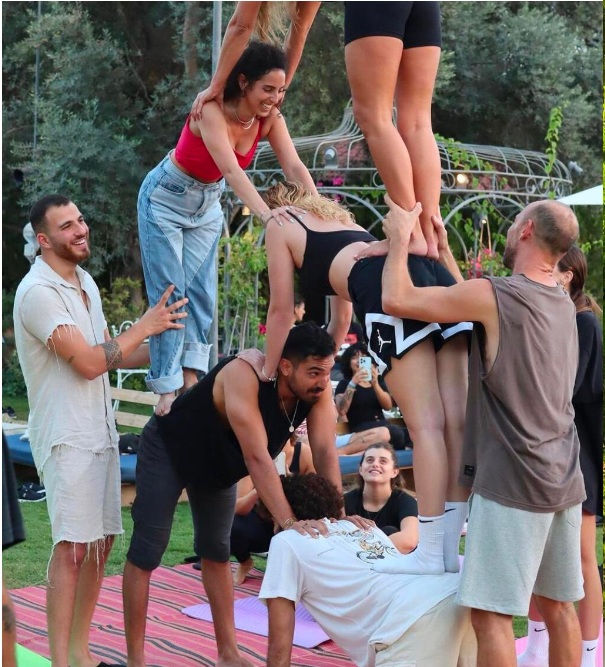

Mental support facility established for Nova music festival massacre survivors at Ronit Farm
(Photo: Ronit Farm)
"The initial desire was to do something meaningful in light of the great chaos," he explains. "After deliberation, the idea arose to treat the Nova survivors because the assumption was that no one would treat them." Already on October 8, it was decided to establish a healing place with quick and quality treatment for anyone exposed to trauma at any level. "I thought I was coming for a short time and would help 10 people a day, after a week there were already 1,000."
The two people who expressed trust in the initiative and wanted to help, Arizon recounts, "were businessman Noam Lanir, and Brigadier General Elyezer Shkedy, who heads the emergency fund of JGive, from which we received a grant that allowed us to provide an initial response."
In his words, "both understood that the role of the state is to take care of people, but in this case there was a display of purpose by citizens who replaced the state."
Today, Arizon says, the state has made contact but still has not entered the picture in practice. "The local authorities understood their responsibility, but the central government has still not implemented its responsibility. There are good intentions but they have still not been translated into a practical plan and budget. The donations we received do not cover the costs, and if the state does not enter the picture, unfortunately, we are expected to stop the initiative."
7 View gallery
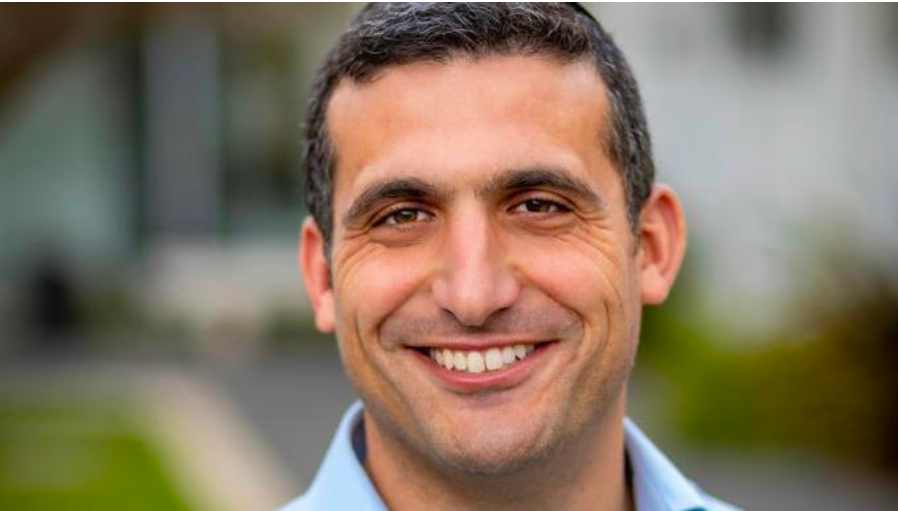

'Social involvement is the foundation for a robust civil society'
(Photo: Arik Sultan)
Ori Ben Shlomo, CEO and founder of JGive summarizes: "The JGive platform was established with the understanding that social involvement is the foundation for a prosperous civil society. As such, it requires cross-sectoral and community partnerships, expressed both through volunteering and financial donations. We were glad to discover in real-time just how much the infrastructures we developed to assist in routine times are critical for establishing important civilian initiatives without equal during emergencies. We saw with our own eyes how a technological infrastructure creating a unique connection between donors, NGOs, businesses and philanthropic foundations enables civil society to enter the 'vacuum' created and act immediately to provide assistance wherever needed."



